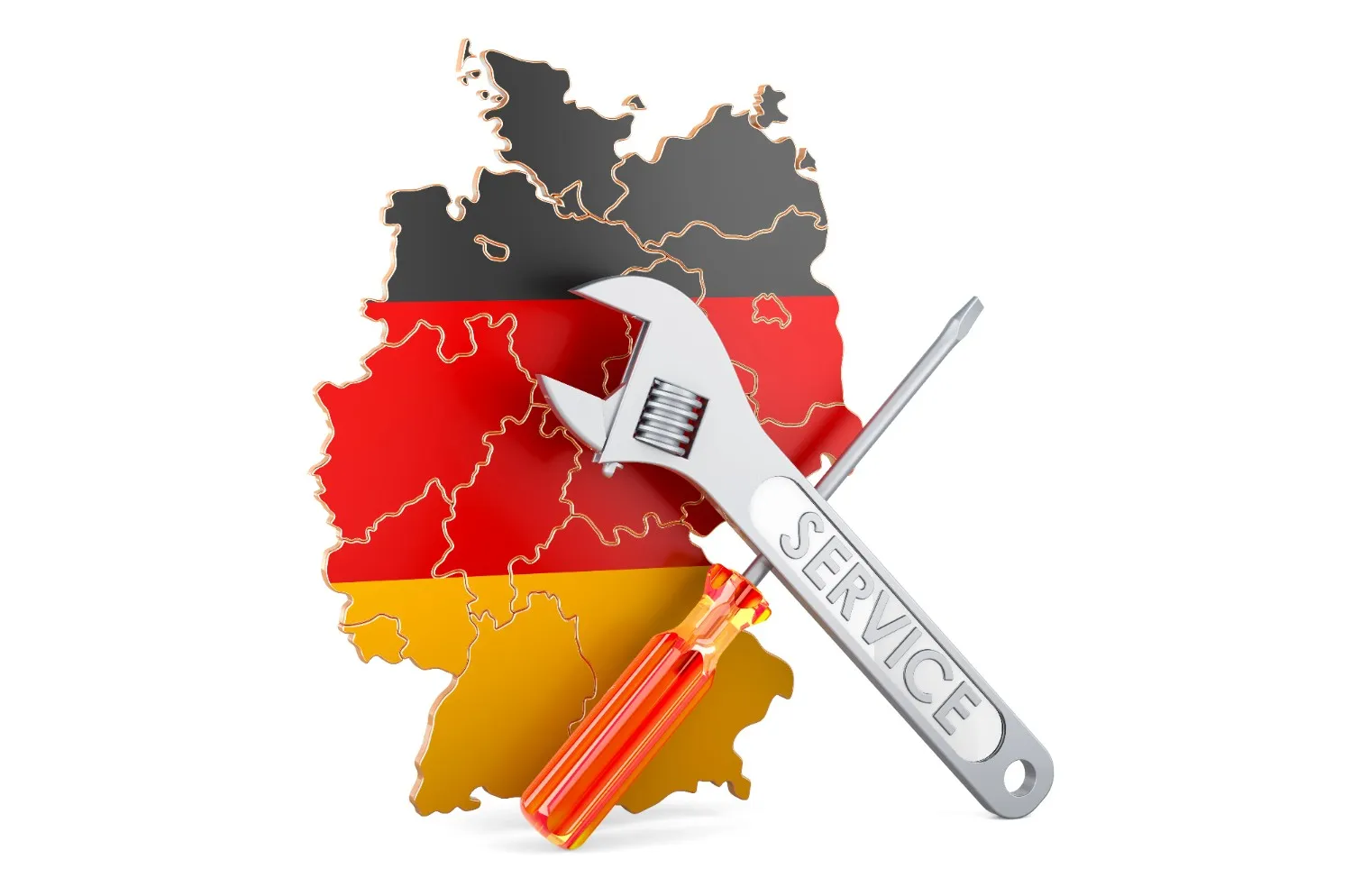A master’s in mechanical engineering is a gateway to lucrative fields, like advanced design, manufacturing, automation, and thermodynamics, which are driving modern innovation. The course is designed to equip students with technical expertise and research-oriented skills. Many aspiring engineers today choose to pursue an MS in mechanical engineering in Germany, which is home to globally renowned universities offering world-class programmes, cutting-edge research facilities, and a thriving industrial ecosystem. In Germany, a master’s in mechanical engineering is typically offered as a two-year full-time programme.
Key highlights:
- Why Pursue a Master’s in Mechanical Engineering in Germany?
- Top Universities for Master’s in Mechanical Engineering in Germany
- Admission Process and Eligibility
- Eligibility Criteria for a Master’s in Mechanical Engineering in Germany
- Admission Process
- Cost of Pursuing a Master’s Degree in Mechanical Engineering in Germany
- Tuition Fees for the 3 Top German Universities Offering MS in Mechanical Engineering
- Cost of Living in Germany for International Students
- Career and Salary Scope After a Master’s in Mechanical Engineering in Germany
- Top Paying Job Roles after a Master’s in Mechanical Engineering in Germany

Why Pursue a Master’s in Mechanical Engineering in Germany?
- World-Class Education: Germany is home to several globally recognised universities and is renowned for its excellent engineering education.
- Strong Industry Connections: The German education system is linked closely with industry and offers students opportunities to gain practical experience through cooperative education programmes and internships.
- Practical Curriculum: Universities in Germany focus on experiential learning with hands-on labs, thesis collaborations, and industrial projects.
- Career Benefits: Germany provides excellent research and learning prospects for mechanical engineering graduates.
- Part-time Jobs: As an international student, you are generally allowed to work part-time up to 20 hours per week during the semester. And, you can work a maximum of 140 full days or 280 half days per year.
- Work Permit: You can apply for a post-study work visa to stay and work in Germany for up to 18 months after completing your course.
Top Universities for Master’s in Mechanical Engineering in Germany
Here are the top universities for pursuing a master’s in mechanical engineering in Germany, as per the Quacquarelli Symonds (QS) World University Rankings and Times Higher Education (THE) World University Rankings.
- QS Category: QS World University Rankings by Subject 2025: Mechanical, Aeronautical, and Manufacturing Engineering (Germany-Specific)
- THE Category: World University Rankings by Subject 2025: Engineering - Mechanical and Aerospace Engineering (Germany-Specific)
| Universities | QS Rankings 2025 | THE Rankings 2025 | Programme Offered In |
|---|---|---|---|
| RWTH Aachen University | 1 | 2 | German |
| Technical University of Munich | 2 | 1 | English or German |
| Karlsruhe Institute of Technology (KIT) | 3 | 3 | English or German |
| Technische Universität Berlin (TU Berlin) | 4 | 4 | German |
| Universität Stuttgart | 5 | 6 | German |
| Technische Universität Dresden | 6 | 5 | German |
| Technical University of Darmstadt | 7 | 7 | German |
| Friedrich-Alexander-Universität Erlangen-Nürnberg | 8 | - | German |
| Leibniz University Hannover | 9 | - | German |
| Technische Universität Braunschweig | 110 | 12 | German |
| Ruhr University Bochum | 113 | 11 | English or German |
Eligibility & Admission Process
Eligibility Criteria for a Master’s in Mechanical Engineering in Germany
Academic Requirements
- A bachelor’s degree in mechanical engineering or equivalent in a related field.
- The overall grade should meet the minimum grade requirements of specific universities.
Language and Aptitude Test Requirements
- Results from English proficiency exams such as the International English Language Testing System (IELTS), the Test of English as a Foreign Language (TOEFL), or the Pearson Test of English (PTE) as required by the university.
- Results from the Graduate Record Examinations (GRE). A strong GRE score can help ensure that your application stands out.
Document Submission
- Academic transcripts
- Statement of purpose (SOP)
- Letters of recommendation (LORs)
- Updated resume
- Valid passport
- Proof of internships and professional experience (if applicable)
Admission Process
- Research a master’s programme in mechanical engineering in Germany that is suitable for your career goals. Check for language, compatibility with your undergraduate degree, programme curriculum, tuition fees, and related details.
- Check the admission requirements at different universities and ensure that you meet them.
- Create a checklist, gather all required documents, and double-check if everything is in order.
- Visit the university’s admissions portal, fill out the admission form, and submit your application with all required documents.
- Wait for the admission decisions to be released. If you have been accepted, you will also receive the admission letter.
- Purchase health insurance.
- Apply for the German student visa.
Cost of Pursuing a Master’s Degree in Mechanical Engineering in Germany
Tuition Fees for the 3 Top German Universities Offering MS in Mechanical Engineering
| Sr. No. | Universities | Language | Tuition Fees(Per Semester) | Semester Fees(To be Paid Additionally) |
|---|---|---|---|---|
| 1 | Technical University of Munich | English | ~EUR 6,000 | ~EUR 85 |
| 2 | Karlsruhe Institute of Technology (KIT) | English | ~EUR 1,500 | ~EUR 300 |
| 3 | Universität Stuttgart | German | ~EUR 1,500 | ~EUR 180 |
Cost of Living in Germany for International Students
| Expense Category | Estimated Monthly Cost (in EU) |
|---|---|
| Rent (One-Bedroom) | ~500 - 1,500 |
| Food | ~200 - 300 |
| Transportation | ~80 - 100 |
| Internet and Phone | ~50 - 100 |
| Miscellaneous | ~100 - 150 |
Career and Salary Scope after a Master’s in Mechanical Engineering in Germany
Germany has a thriving industrial sector and a strong focus on engineering excellence and innovation, which is driving demand for skilled mechanical engineers. A master’s in mechanical engineering in Germany opens the door to amazing career opportunities with lucrative salaries that average around EUR 55,000/year.
Also Read: Germany Study Visa Process: A Guide for 2025
Top Paying Job Roles after a Master’s in Mechanical Engineering in Germany
- Tool Engineer
- Senior Design Engineer
- Senior Mechanical Engineer
- Powertrain Engineer
- Maintenance Engineer
- Nuclear Engineer
- Mechanical Design Engineer
- Research and Development Engineer
- Instrumentation Engineer
Pursuing a master’s in mechanical engineering in Germany offers a number of benefits. However, to make the most of the experience, careful financial planning is a must. Availing an education loan for studying abroad is one of the best ways to finance your studies independently and focus only on your academics.
At Avanse Financial Services, we support students by offering education loans tailored to suit their specific requirements. Our study loans come with 100% financing, quick sanctions and flexible repayment options. You can use our EMI calculator to calculate EMI for education loan and plan better. Feel free to call us. We are happy to help you and answer your queries.











